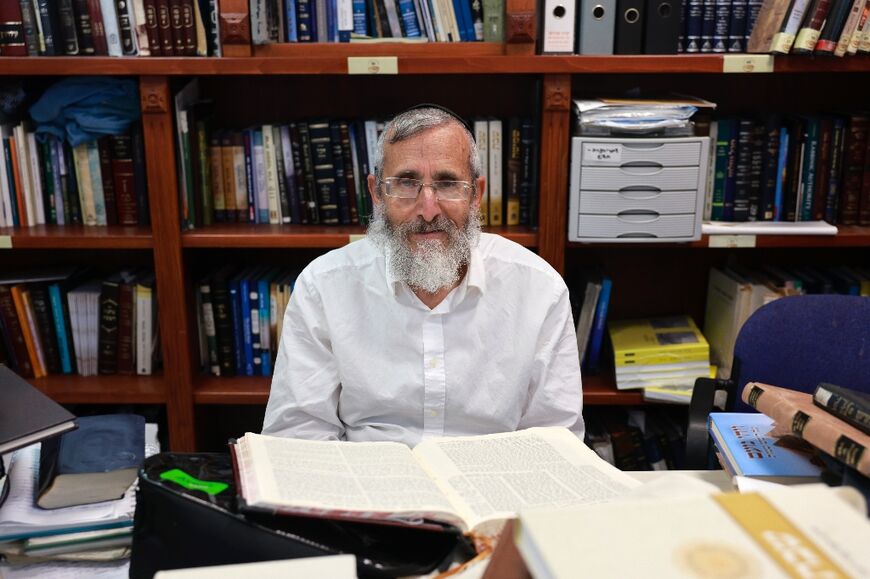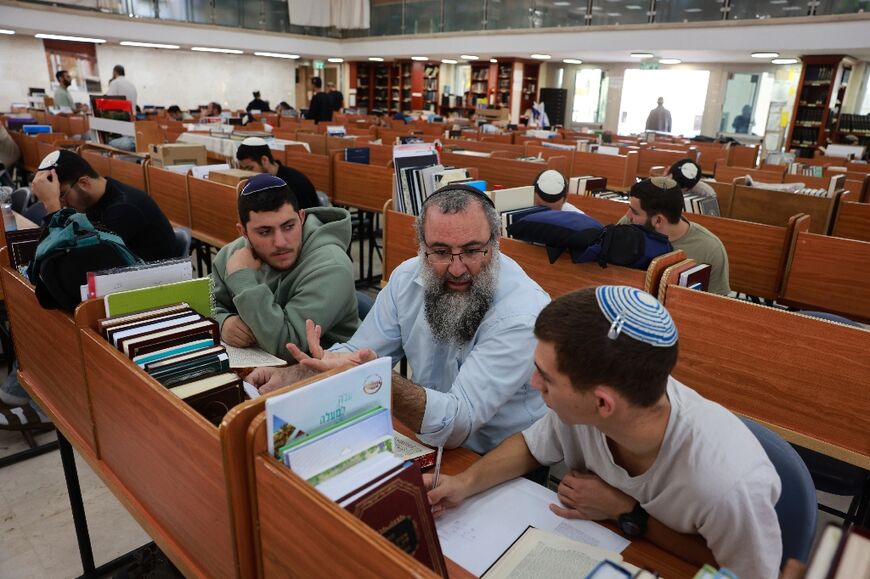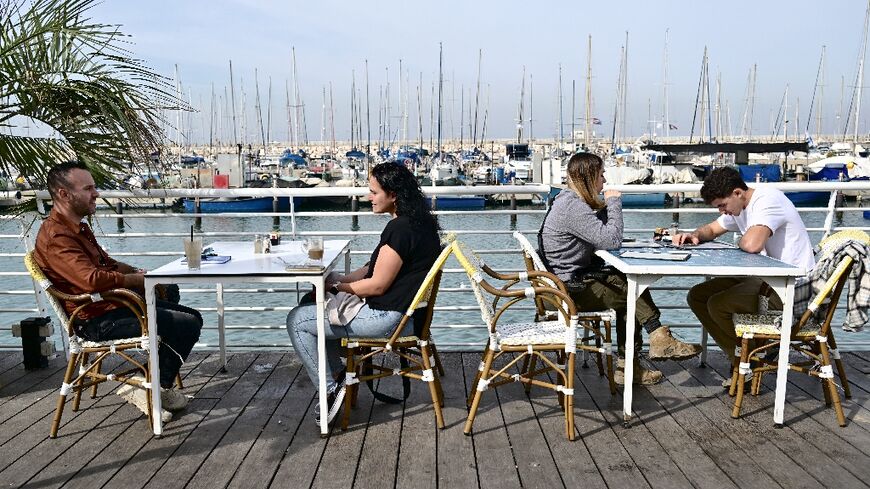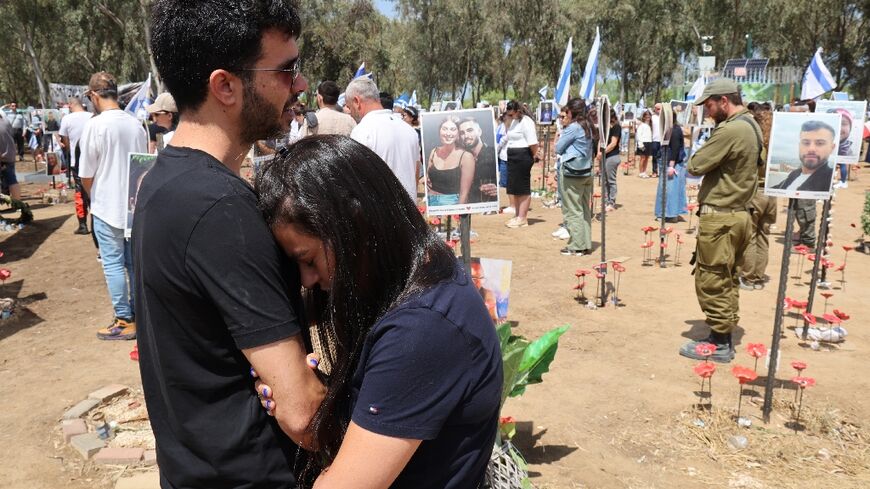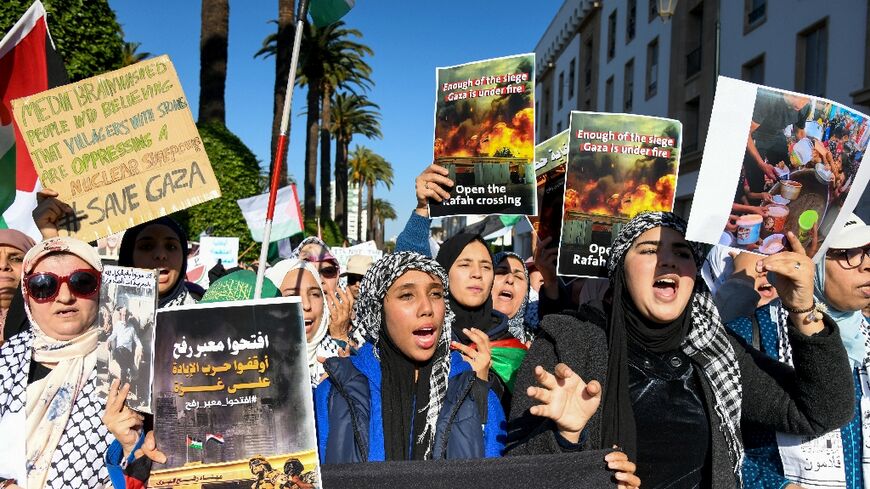Jewish seminary hopes to revive Israeli town deserted in Gaza war
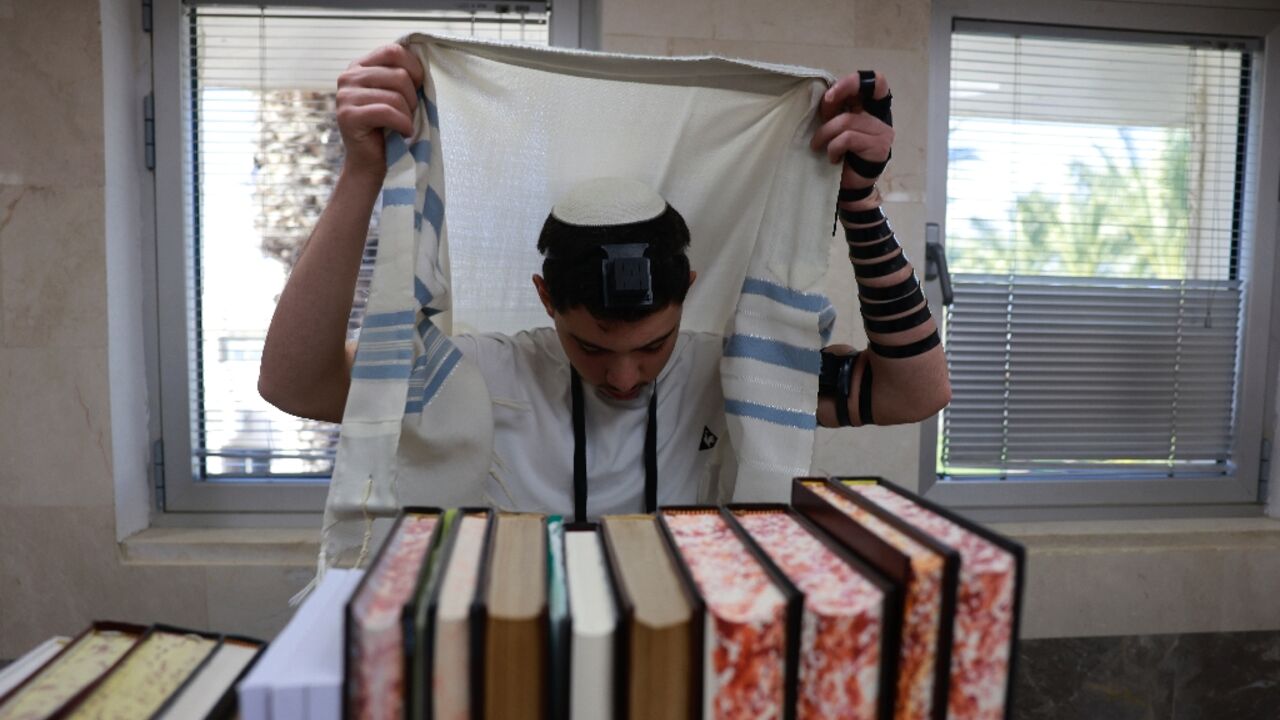
Most residents have left Sderot, an Israeli town near Gaza, since war erupted with the Hamas attacks on October 7, but a reopened Jewish seminary hopes to bring life there back on course.
With the sound of outgoing artillery fire in the background, the study hall at the Sderot yeshiva -- less than five kilometres (three miles) from the besieged Gaza Strip -- is bustling with students.
"We want to be the guardians of the city, and we study the Torah here because that is the foundation of the Jewish nation," said rabbi David Fendel, director of the institution.
The town of some 35,000 residents has remained largely deserted since the attack by Palestinian militants, which in Sderot killed at least 40 people including numerous officers who died in a battle over a police station.
Overall, the October 7 attack killed about 1,140 people, mostly civilians, in Israel, according to an AFP tally based on official figures.
The militants also abducted an estimated 250 people, 129 of whom remain held in Gaza according to Israel.
Israel, in response, vowed to defeat Hamas and launched a military offensive in Gaza, ruled by the Islamist movement since 2007.
The fighting has killed more than 20,400 people, mostly women and children, in Gaza, according to the territory's health ministry.
The yeshiva in Sderot, established nearly 30 years ago, closed its doors immediately after the attack.
But not long after, its students and staff were among the first to return, even as many residents prefer to stay in other parts of the country for now, far from the violence.
- 'Jewish presence' -
Fendel told AFP the seminary of about 600 students seeks to "strengthen the city with Torah and Zionism".
"When you have the force of hundreds of young idealists, life in Sderot takes a turn."
But the rabbi looks beyond his town. In the future, he said, there should be "a Jewish presence" inside Gaza, from which Israel in 2005 withdrew its troops and settlers.
Rights groups and regional governments have expressed concern that the war might trigger a wave of displacement beyond Gaza's border, while Israel has sought to assure that it does not seek to re-establish a permanent presence in the territory.
On October 7, the final day of the Jewish festival of Sukkot, students and instructors at the yeshiva were taken by surprise when a pre-dawn rocket barrage was swiftly followed by shooting on Sderot's streets, several dozen metres from the institution.
Some yeshiva students have since joined the ongoing war in the Israeli military's ranks as reserve soldiers. The remaining students were authorised by the army to return.
"Coming back was a shock because the city is empty," said Ron Amar, 20, who has studied at the institution for two and a half years.
"But we want to show the way and encourage" residents to return to Sderot, he said.
Amar, who volunteers with rescue services, recalled the sight of bodies lying on the ground on October 7.
But he had to "keep my cool" to help others, he said.
"We're used to rocket fire, but this time it was different."
Sderot has suffered rocket barrages from Gaza for about 20 years, but before October 7, the town had never been evacuated.
Few residents have returned, the streets are empty and most shops around Sderot remain closed.
"Being here is showing Hamas they haven't beat us, that we didn't run away and that we stay strong," said Amar.
For Fendel, "we must increase our prayers for our soldiers, our hostages and the people of Israel".
"The city needs us."


